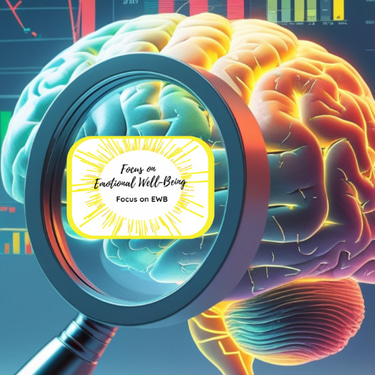Inside Your Brain: Feelings & Synapses

Welcome to our exploration of the brain's inner workings and how our thoughts can shape our emotional landscape. Today, we delve into Automatic Negative Thoughts, or ANTS, and their daily impact on our mental well-being. Understanding this phenomenon can empower us to break free from negative thought patterns and cultivate a healthier mindset.
What Are ANTS?
Automatic Negative Thoughts (ANTS) are persistent, reflexive thoughts that arise without conscious effort. They often stem from negative past experiences and are characterized by self-criticism, catastrophising, and unrealistic assumptions. For example, thoughts like "I'll always fail" or "I'm not good enough" are common manifestations of ANTS.
The Brain's Response
Neurons communicate through synapses in our brains, creating networks that influence our thoughts and feelings. When we frequently engage in negative thinking, we inadvertently strengthen the neural pathways associated with those thoughts. This process makes it increasingly difficult to respond positively to challenges, reinforcing a cycle of negativity that can lead to anxiety and depression.
Daily Life and ANTS
ANTS can be pervasive in our everyday lives. Situations like receiving constructive criticism at work or facing minor setbacks can trigger these damaging thoughts. Instead of approaching these experiences with a balanced mindset, individuals may spiral into a whirlwind of negative thinking, resulting in avoidance behaviours and decreased motivation.
Breaking the Cycle
So, how can we combat the harmful effects of ANTS? The key lies in cultivating mindfulness and self-awareness. It's essential to recognise these thoughts without judgment and challenge their validity. Cognitive Behavioural Therapy (CBT) techniques can be particularly effective in reframing negative thoughts. For instance, transforming "I always fail" into "I can learn from my mistakes" can significantly alter our perception.
Building a Supportive Environment
Surrounding ourselves with positive influences can also lessen the impact of ANTS. Engaging with supportive friends, seeking professional help, and participating in uplifting activities can foster resilience against negative thinking. Moreover, maintaining a healthy lifestyle through regular physical activity, balanced nutrition, and proper sleep can further enhance our overall mental health.
Conclusion
Understanding the intricate relationship between feelings and synapses in our brains sheds light on the profound influence Automatic Negative Thoughts have on our emotional well-being. By recognizing and addressing these thoughts, we take an essential step toward cultivating a healthier, more fulfilling life. Embrace this journey of self-discovery, and remember that you can reshape your thoughts and improve your emotional landscape.
